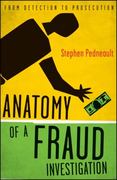Question
Problem #1: Consider the one period model with endogenous labor supply we studied in class. In particular, assume that there are two type of workers:
Problem #1: Consider the one period model with endogenous labor supply we studied in class. In particular, assume that there are two type of workers: a unit mass of poor workers who are endowed with 1 unit of labor effort. These workers do not value leisure and supply labor inelastically. Define cP to be the consumption of a poor worker, her utility function is: Up = ln cP . There is also a unit mass of rich workers who are endowed with N > 1 units of time of which they devote a fraction lR for leisure and (1 lR) for work (the quality/skills of both types of workers is the same). Rich workers derive utility from consumption and leisure, cR and lR, respectively, where the subscript R, indexes the variables that pertain to the rich. The preferences of a rich worker are such that: U(c, l) = ln cR + ln NlR As in the model discussed in class, a representative firm has access to a CobbDouglas production technology that converts capital and labor into units of goods, with: Y = AK L 1 The firm hires workers in perfectly competitive markets. As mentioned above, the quality of rich and poor workers is the same, thus the firm treats them as identical. All of the firm's profits, is paid to rich consumers. Moreover, the firm owns the capital stock and sells its goods at a price P = 1 in a perfectly competitive market. Finally, there is a government that imposes a lump sum tax, T on rich workers only. As a benchmark, the government uses the revenues collected from workers to fund its unproductive spending, G. . Solve the producer's problem and derive an expression for labor demand. (5 points) F. Write down the expressions for aggregate labor demand and labor supply and illustrate each curve in an (x, y) plane, with wages being on the vertical axis. For a given , show what happens to real wages, output, cR, cP , the total number of hours worked when rich workers have more units of time. That is when N is higher. Explain your results intuitively (25 points)
G. Let cR cp to be the proxy for income inequality between different types of workers. For a given , show what happens to income inequality when: i. the T F P is higher. (5 points)
ii. N is higher. (5 points)
Step by Step Solution
There are 3 Steps involved in it
Step: 1

Get Instant Access to Expert-Tailored Solutions
See step-by-step solutions with expert insights and AI powered tools for academic success
Step: 2

Step: 3

Ace Your Homework with AI
Get the answers you need in no time with our AI-driven, step-by-step assistance
Get Started


